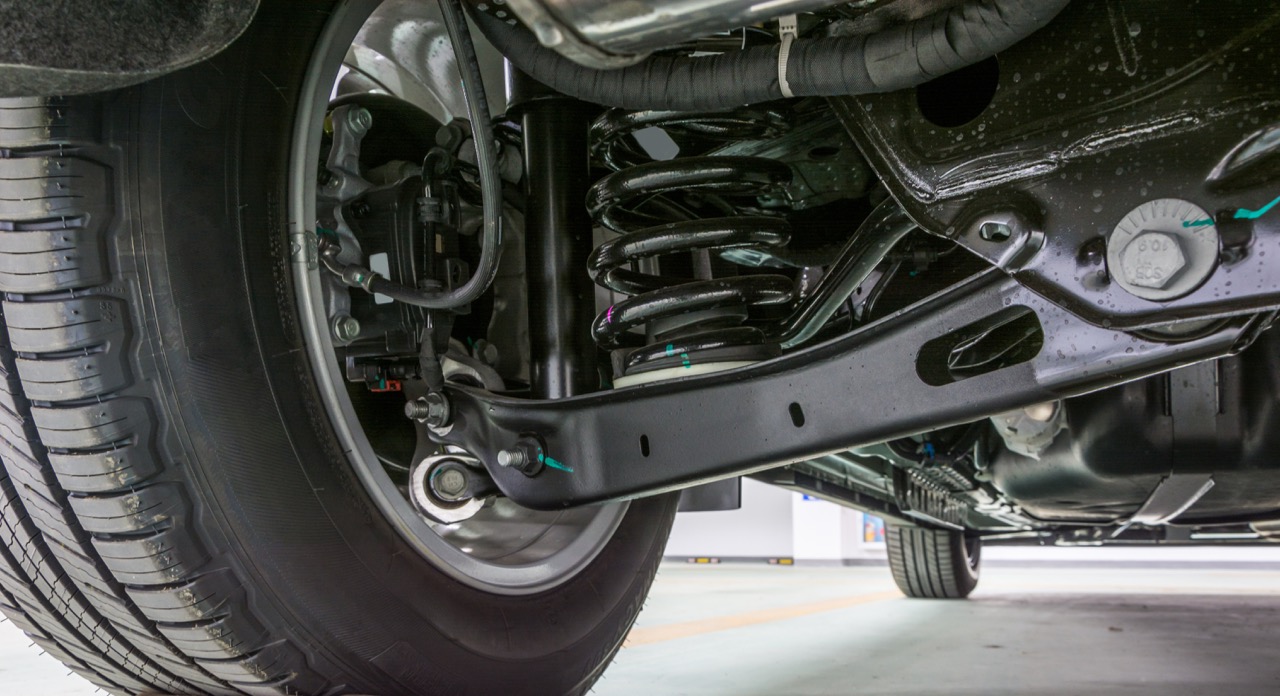
As a car owner, you are well aware that your vehicle requires routine maintenance such as tire replacements and oil changes. But how frequently do you consider your vehicle’s suspension? Because many drivers believe suspension is simply about providing a smooth ride, this component of the vehicle is sometimes disregarded when it comes to maintenance. Many pieces make up your suspension, and they might impact your ability to steer and spin the vehicle.The suspension of your automobile connects the vehicle’s body to the wheels. It’s what allows the driver to steer and move the vehicle. Tires, tire air, springs, links, and struts/shock absorbers are all part of the suspension system.
How important is my car’s suspension?
The suspension system in your automobile keeps your wheels on the road while also absorbing the stress of uneven surfaces. The state of your suspension system determines how your automobile accelerates, brakes, and manages traction challenges, including rain, potholes, turns, and curves. The suspension system in your automobile is crucial since it aids in simpler handling as well as keeps you safe and in control of your vehicle. Your shock absorbers, for example, prevent you from experiencing all of the bumps and bouncing that occur when driving on the road.
Signs that your car’s suspension is damaged
- Your suspension may be damaged if you feel like you’re driving a car with square wheels. Struts and/or shocks are usually to blame for a very rough ride. These suspension pieces are meant to absorb road bumps, but if you can feel each one, they’re definitely worn out and need to be replaced.
- When you stop, start, or turn, the struts and shocks keep the body of your vehicle, truck, or SUV stable. When you do any of these things, your car should not rock forward, backward, or sideways. If you do, it’s another clue that the shocks and struts need to be replaced. They are no longer able to maintain motion stability.
- It’s natural for the frame of your car to seem sunken if it’s been lowered. If you haven’t, or if your car leans on one tire when parked, you’ve most likely damaged a suspension spring or springs. Clunking noises might sometimes mean that something is broken beneath the vehicle’s body.
- The wheels are part of your vehicle’s suspension, and if they aren’t balanced or aligned properly, your tire tread may wear down in patches, scallops, or spots. Uneven tire wear can also signal that your vehicle’s suspension isn’t equally distributing the vehicle’s weight, which might indicate a variety of problems.
Common tests
- The bounce test is a simple way to check. Simply place your full weight on the hood of your automobile. Release the vehicle and count how many times it bounces. There is an issue with your shock absorbers or struts if they bounce more than three times.
- Whether your automobile has shock absorbers or struts determines an alternate test. Look for leaks of the fluid that serves to lessen the bouncing if your automobile has shock absorbers. When driving over bumps, listen for a banging sound if your automobile has struts.
- Your shocks will be greasy if they are leaking fluid. Take a flashlight and shine it on the shock absorbers under your wheels. Is there any oil on the ground? Feel the jolts. If you notice oil, your shocks need to be changed. They don’t leak fluid until they’re worn out and can’t do their function effectively any longer.
The optimal suspension for your automobile or truck should be able to handle the stresses imposed by your particular driving situation. Your car’s suspension should be able to provide driving stability and reduce the influence of a specific road condition on your vehicle, whether it’s used for daily commutes or hard racing.
Related Posts
Key Takeaways On average, passenger vehicle tires last 40,000 to 60,000 miles, depending on type, driving habits, and maintenance. Replace tires when tread depth reaches 2/32”, if damaged, or older than 10 years. Regular rotation, alignment, and proper inflation extend tire life. Aggressive driving, poor roads, and harsh weather shorten tire lifespan. Take advantage [...]
When you think about car maintenance, you probably focus on oil changes, tire rotations, and maybe even brake pad replacement. But what about your brake fluid? If you’ve ever wondered, “What does brake fluid do?” or “Why is brake fluid important?”, you’re not alone. Brake fluid might not be the most talked-about part of [...]
Is that high-pitched squeal from your brakes driving you—and everyone else—crazy? Don’t ignore it. Squeaky brakes aren’t just annoying, they’re your car’s way of saying something needs attention. Whether you're cruising through Salt Lake City or winding up Idaho’s mountain passes, here’s what’s likely going on, how you can fix it, and when it [...]





